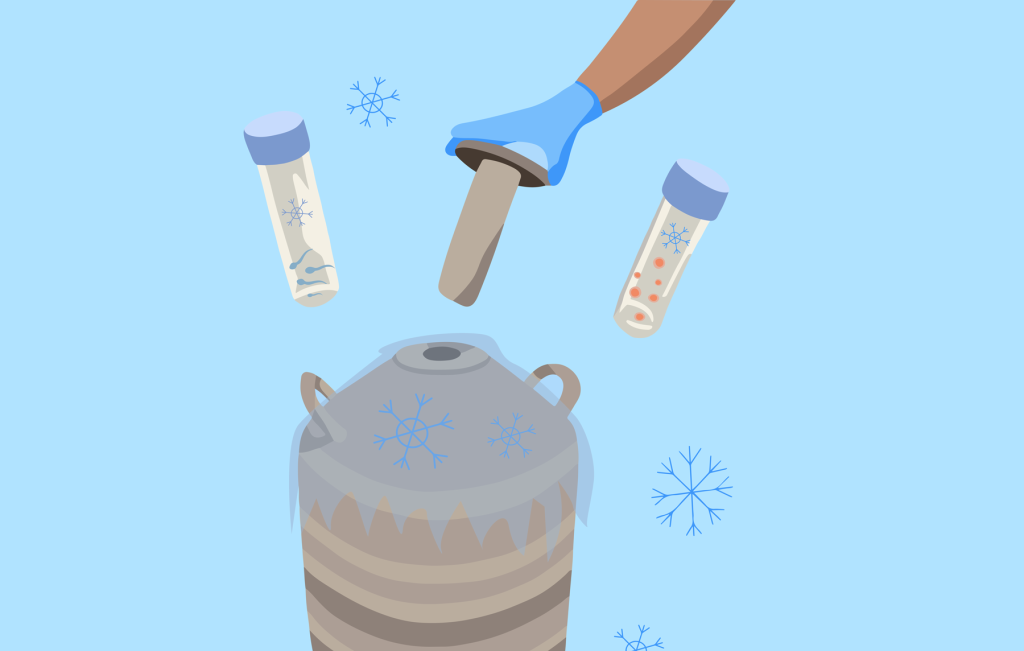- About
Our consultants
Meet our experienced team of consultantsSupport team
Meet our support team working alongside our doctors to deliver the very best careOur clinic
Discover more about The Fertility & Gynaecology Academy
- Patient journey
I am a...
Learn about the services relevant to your fertility journeyThe journey...
Learn about what's involved in fertility treatment
- Fertility tests
Packages
Fertility testing packages to take the hassle out of investigations
More screening options
Find out about our additional screening options - Treatments
Getting pregnant
Fertility treatments to help you achieve your dream
Add-on treatments
Learn about add-on fertility treatments
Supporting treatments
Additional services to support you on your fertility journey - Success rates
- Knowledge hub
Watch, read, and learn
Expand your knowledge on all aspects of fertility - Pricing
Financing fertility treatment
Honest and transparent pricing for peace of mind
No two patients have the exact same treatment but here we have provided an example patient journey to help illustrate what a straight-forward IVF cycle might look like cost-wise.
- Contact
Wanting to delay pregnancy?
So you’re thinking of having a baby at some point – but not yet!
Many women and couples want to delay starting a family to accommodate their working lives, or their social and economic situation.

So you’re thinking of having a baby at some point – but not yet!
Some women have recurrent miscarriages and have to endure the Many women and couples want to delay starting a family to accommodate their working lives, or their social and economic situation. of repeated grief and physical loss. But this doesn’t necessarily mean the end of your fertility journey.
Fertility treatments are generally considered very safe, however, there are always risks to any medical treatment. Whilst some complications are very minor, other can be more serious, so it’s helpful to be aware of what to look out for.

Is fertility preservation the right choice for you?
Sometimes individuals have to think about ‘preserving’ their fertility due to medical reasons. Life is all about choices and we are lucky that technology can help us make better and more informed decisions.
At The Fertility & Gynaecology Academy we can give you all the information you need about your fertile lifespan. We help you make the right decision about when to start a family.
It’s important to understand the reality of diminishing fertility. Whilst at age 30, 75% of women will fall pregnant within a year, this figure drops to 66% at 35 and continues to fall off more dramatically past the age of 40 (Royal College of Obstetricians and Gynaecologists).
To give you peace of mind and prevent unexpected fertility issues causing you problems when you do want to have a baby, we advocate that both women and men in their 20s and 30s undergo fertility testing regularly.
For women this includes assessing ovarian reserve with an ultrasound and AMH test or ‘egg timer’ test, but male fertility is equally important. 20-30% of infertility cases globally can be attributed to male infertility and this number is rising (NCBI). For men we offer comprehensive semen analysis and MAR testing.
Fertility preservation treatments
Egg freezing is a good way of preserving fertility for those who want to delay pregnancy. Eggs are collected and stored using the same method as that for IVF. Overwhelming evidence suggests that egg freezing is safe and efficient and that fertilisation rates are on a par with fresh eggs. In fact, there could be benefits in terms of lower miscarriage and chromosomal abnormality rates when using eggs harvested from patients of a younger age at the time of retrieval. Egg storage is limited to 10 years.
Sperm freezing benefits men who have low sperm count or are showing signs of sperm deterioration, and those due to undergo surgery and medical treatment which would impair fertility. Sperm storage is limited to 10 years (but can be extended) and success rates with frozen sperm are high.



